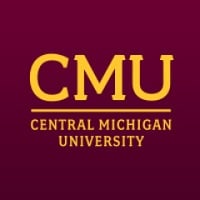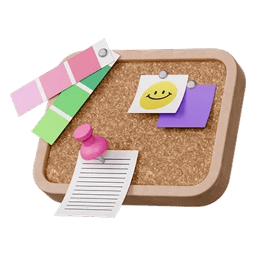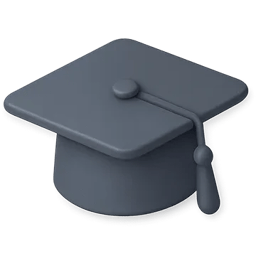The Backstory
If you had asked me a couple of years ago where I saw myself after A Levels, I probably would’ve said, “IBA, maybe LUMS.” I never imagined I’d be studying in the United States, thousands of miles away from home, learning how to navigate both a new campus and a new culture.
The idea of studying abroad didn’t come from a lifelong dream or a carefully mapped-out plan. It came from a moment- during the summer before A2- when I thought, Why not just apply? That impulsive decision slowly took shape, and before I knew it, I was filling out applications, writing essays, and figuring out the SAT.
Academic Path
I completed my O Levels from Bahria College and moved to Lahore Grammar School for A Levels, where I studied Physics, Chemistry, Mathematics, and initially, Biology. After scoring a D in Biology in AS, I dropped it and focused on the remaining three. My grades weren’t perfect- with two B’s and a C in AS- but I ended A2 with consistent Bs across the board. It was enough to prove growth, and sometimes, that’s all you need.
I also took the SAT twice- scoring 1340 then a 1360, which superscored to 1400. It wasn’t an Ivy League-worthy number, but it reflected effort and progress. Combined with my extracurricular profile and essays, it helped shape a solid application.
The Application Process
I applied to eight or nine U.S. universities, including NYU Shanghai (where I was accepted), Central Michigan University, and a mix of other public and private schools. I didn’t apply outside the U.S., mostly because the Common App made things efficient, and because I had limited time and resources. My high school counselor played a huge role in the process- helping me navigate fee waivers and making sure I didn’t drown in paperwork.
When choosing where to apply, I considered the obvious things: tuition, location, major offerings, and scholarships.
Why Central Michigan University?
I made sure to apply to a good mix of universities: a few reaches, some targets, and some safeties. I also made sure to apply to a variety of schools- some prestigious, some mid-range, and some safeties- because in this process, you never really know what’ll happen. You should never put all your eggs in one basket. I got into most of them, including NYU Shanghai- a well-known, competitive campus with a strong international focus. I also received offers from several other public and private universities across the U.S.

So why didn’t I go to NYU Shanghai or one of the bigger-name schools? It came down to practicality.
Central Michigan University offered me the best financial package. I was awarded the President’s Award Scholarship, which covers around 55–60% of my international tuition. On top of that, I received a few smaller merit-based scholarships funded by the university’s alumni network. That combination made CMU not just the most affordable option- but the most sustainable one long term.
Additional Costs
Of course, scholarships only go so far. Living expenses, meal plans, and other day-to-day costs were still on me. So I got a job as an IT Technical Support Specialist at CMU’s Office of Information Technology. It was my first real experience balancing work and studies, and it’s helped me begin the slow (and sometimes painful) journey toward financial independence. My parents still support me when needed, but for the most part, I’m learning how to manage my own expenses- and it’s one of the most valuable parts of this experience.
Choosing CMU wasn’t about prestige. It was about opportunity, support, and the ability to build a life here without burning out or breaking the bank. And so far, I think I made the right call.
A Closer Look at My Extracurriculars
If academics were the bones of my application, extracurriculars were the heart. I didn’t just check off boxes- I immersed myself in things that genuinely interested me. I didn’t want to be one of those students who did dozens of different things without knowing what actually interested me.

Model United Nations (MUN)
MUN played a major role in shaping my public speaking and critical thinking skills. I participated in MUN conferences every year throughout high school. I’ve attended sessions in both Islamabad and Lahore, and received several awards, including Best Delegate and Outstanding Diplomacy. MUN taught me how to speak with confidence, think on my feet, and negotiate diplomatically- skills that I still use in college classrooms and job interviews today.
I never treated MUN as just an extracurricular; to me, it was training for the real world- debating, collaborating, understanding global issues. And it was also a place where I found community and challenge.

Internships
During O-Levels, I worked under the guidance of a provincial minister. It started as a volunteer role but quickly turned into a valuable learning experience. I worked on community initiatives and got a firsthand look at public welfare work in Pakistan.
Later, during the summer before A2, I interned in the marketing department of SuccessFactor, an education-focused company based in Islamabad. This internship was fully in-person, and I was involved in campaign development and outreach planning. I got to see how an education startup operates from the inside- and how marketing isn’t just flashy slogans, but strategy, data, and storytelling.
Together, these internships gave me insight into both the public and private sectors, and they also taught me how to adapt to different work environments—a skill that’s helped me transition smoothly to my current job on campus.
Life at CMU
I’m currently majoring in Actuarial Sciences. The coursework so far hasn’t been too demanding, since most of my classes are introductory 200-level ones. I know it’ll get more intense in the coming years, but for now, I’m getting comfortable with the rhythm of university life.
The cultural transition from Pakistan to the U.S. was noticeable. Simple things- like people greeting strangers, or being obsessed with small dogs, or the campus culture around American football- took some getting used to. I’ve had to learn how to balance my religious practices with class and work schedules, especially around prayer timings and halal food availability. It’s not always easy, but it’s manageable once you adjust.

Social Life & Networking
Making friends wasn’t something I planned for- I didn’t walk onto campus thinking, Okay, time to make best friends forever. But slowly, naturally, connections formed. Some of my closest friends are people I met in random places: walking to class, sitting in the cafeteria, or waiting for a bus.
Networking here requires effort, especially for international students. If you want to meet people, you need to be present- outside your dorm, at events, in clubs, in classrooms. People are generally open and friendly, but they won’t always come to you first.
Looking Ahead
Right now, I don’t know where I’ll end up after graduation. I might stay in the U.S., go back to Pakistan, or explore other countries, depending on where opportunities take me. I still have time to figure that out, and I’m letting the experience shape me before deciding on a permanent path.
Final Thoughts: What I’d Tell Other Students
If you’re an international student thinking about applying abroad, here’s what I’ve learned:
Start early. Your grades don’t have to be perfect, but your application should show effort and growth. Apply to a range of schools- yes, even the ones you think you won’t get into. I didn’t apply to places like Harvard or Stanford because I doubted myself, and I regret not trying.
Build a strong extracurricular profile. Don’t do things just for the sake of your resume- choose what genuinely interests you and go deep. Whether it’s MUN, internships, writing, coding, volunteering, show that you care, and that you’ve made an impact. I don’t believe in doing a lot of different activities, just ones that you can genuinely show you were interested in.
Studying abroad wasn’t always my dream, but living it has taught me more than I ever imagined.






